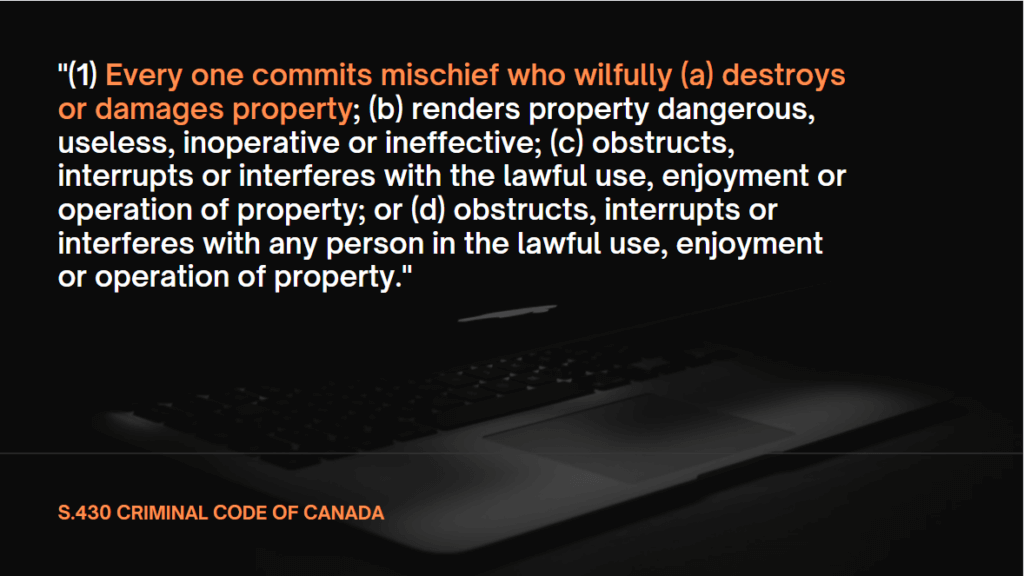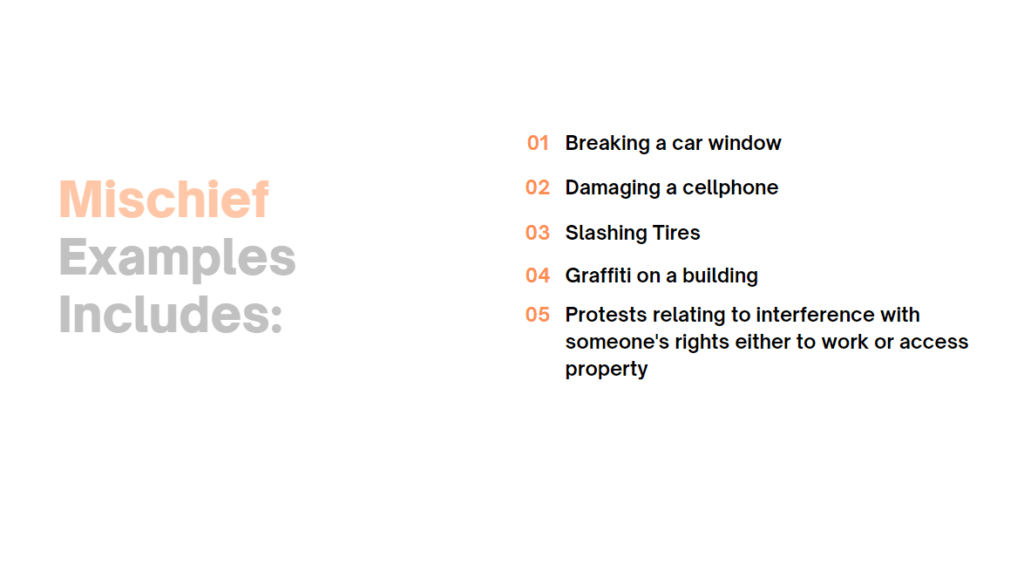- Practice Areas
Explore Our Practice Areas
Delve into detailed case studies across a variety of legal practice areas, showcasing our strategic defense and successful outcomes.

Delve into detailed case studies across a variety of legal practice areas, showcasing our strategic defense and successful outcomes.

If you are facing mischief charges in Toronto, you should hire a criminal lawyer to defend you. Hiring someone well-versed in criminal law can help you negotiate a favourable outcome, such as having the charges dismissed or obtaining a discharge, allowing you to avoid a permanent criminal record. Kahlon Law has years of experience handling mischief cases. Give us a call today to book a consultation!

According to Section 430 of the Criminal Code of Canada, mischief occurs when a person alters or destroys property, or renders it dangerous, useless, inoperative, or ineffective. Mischief also applies when a person obstructs, interrupts, or interferes with the lawful use of property, or obstructs any person’s use of their own property. The most common types of mischief include slashing someone’s tires, spray-painting a building, and breaking someone’s window. If the Crown Attorney’s office charges you with mischief, it must be able to prove beyond a reasonable doubt that you are responsible for damaging another person’s property.
Kahlon Law has years of experience handling mischief cases. Give us a call today to book a consultation!

Mischief offences are hybrid offences, meaning the Crown will determine whether to proceed summarily or by indictment. In making this decision, the Crown will consider the severity of the offence along with other circumstances related to the case and the accused. If the Crown prosecutor proceeds by indictment, the maximum penalty for mischief over $5,000 is ten years of imprisonment. If the value of the property damage is less than $5,000, the maximum penalty is two years in prison. Although a mischief charge can carry severe penalties, it’s worth noting that the majority of mischief convictions do not result in jail time—especially when offenders enlist the help of an experienced criminal lawyer who knows how to effectively defend against such charges.
In the eyes of the law, an individual can damage property that is entirely their own, provided there is no intent to defraud anyone. This is not considered mischief, as the criminal offence pertains to damage done to property owned, in whole or in part, by someone other than the person who caused the damage. Therefore, a person who destroys their own property will not be charged with mischief. However, if a person damages assets that are jointly owned—such as in a domestic dispute between spouses—they could face criminal liability for mischief.
According to the Criminal Code, an individual who commits an act of mischief must act ‘willfully.’ Unintended or accidental acts do not meet the requirement of willfully destroying property and therefore will not result in criminal charges.
The first question people facing mischief charges often ask is what the consequences are. While every case is different, here are some of the potential penalties offenders may face.
The truth is that extensive damage to property can result in a permanent addition to your criminal record, especially if the damage exceeds $5,000.
With the help of a skilled criminal lawyer, it is possible to negotiate with the Crown Attorney to have a mischief charge dropped in exchange for paying the complainant back for the damage done (this is known as ‘restitution’). The Crown Attorney will consider the type of asset damaged, the criminal histories involved, and the circumstances surrounding the offence. Even if the Crown Attorney refuses to drop the prosecution, compensating the property owner can serve as a significant mitigating factor during sentencing.
Here are some of the other consequences of mischief in Toronto:
Mischief may be judged more severely in certain circumstances, resulting in harsher punishments. Mischief committed against a house of worship, an academic institution, a childcare facility, a community centre, an elders’ residence, cultural property, or a military memorial, for example, may lead to increased penalties. Furthermore, the Criminal Code explicitly addresses mischief in relation to testamentary instruments and computer data, both of which carry stricter punishments. Lastly, mischief that puts someone’s life in actual danger can result in life imprisonment.
A criminal mischief conviction can have a significant impact on a person’s career, liberty, and future opportunities, even if they have no prior criminal history. It’s essential to remember that every allegation of wrongdoing requires a fact-based investigation. Having an attorney who can help you identify the appropriate defences for this type of charge will give you the best chance at a positive outcome. Contact Kahlon Law today to learn more about mischief charges or to book a free consultation and case review with an experienced mischief lawyer!
We’ve Got the Answers. Call us now and speak directly with a lawyer.
